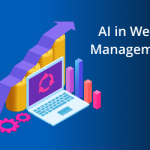Introduction
The financial landscape is undergoing a dramatic transformation, driven by the rise of artificial intelligence (AI). From automating routine tasks to making complex investment decisions, AI is revolutionizing how we approach investing. This comprehensive guide explores how AI is reshaping investment strategies, enhancing decision-making, and opening new opportunities for investors.
The Emergence of AI in Finance
Historical Context: The integration of technology in finance is not new. However, the advent of AI has accelerated this trend, bringing unprecedented changes. Early adopters of AI in finance have gained significant advantages, demonstrating the potential for AI to revolutionize the industry.
AI Technologies in Use: AI encompasses a variety of technologies, including machine learning, natural language processing (NLP), and robotic process automation (RPA). These technologies enable the analysis of vast amounts of data, identification of patterns, and execution of trades with high precision and speed.
Enhancing Decision-Making with AI
Data Analysis and Insights: One of the most significant impacts of AI is its ability to analyze vast amounts of data quickly and accurately. AI algorithms can process data from multiple sources, including financial reports, news articles, and social media, to generate actionable insights. This capability allows investors to make informed decisions based on real-time data.
Predictive Analytics: AI’s predictive analytics can forecast market trends and asset performance. By analyzing historical data and identifying patterns, AI can provide predictions about future market movements. This enables investors to anticipate changes and adjust their strategies accordingly.
Risk Management: AI enhances risk management by identifying potential risks and suggesting mitigation strategies. For example, AI can analyze market volatility and provide recommendations on portfolio adjustments to minimize risk. This proactive approach helps investors protect their assets and achieve more stable returns.
Actionable Tips:
- Utilize AI-powered tools to gather and analyze real-time data.
- Leverage predictive analytics to anticipate market trends.
- Implement AI-driven risk management strategies to protect your investments.
Automating Investment Processes
Algorithmic Trading: AI-driven algorithmic trading involves using algorithms to execute trades based on predefined criteria. These algorithms can analyze market data, identify trading opportunities, and execute trades at optimal times. Algorithmic trading reduces human error, increases efficiency, and can enhance returns.
Portfolio Management: AI can automate portfolio management by continuously monitoring and rebalancing portfolios based on market conditions and investment goals. AI-driven portfolio management tools can optimize asset allocation, ensuring that portfolios remain aligned with investors’ objectives and risk tolerance.
Robo-Advisors: Robo-advisors are AI-powered platforms that provide automated, algorithm-driven financial planning services with little to no human supervision. They use AI to create and manage diversified portfolios tailored to individual investors’ goals and risk profiles. Robo-advisors make investing more accessible and affordable, particularly for beginners.
Actionable Tips:
- Explore algorithmic trading platforms to enhance trading efficiency.
- Use AI-powered portfolio management tools for continuous optimization.
- Consider robo-advisors for automated and affordable investment management.
Personalizing Investment Strategies
Customized Portfolios: AI enables the creation of customized investment portfolios that cater to individual preferences and financial goals. By analyzing personal data, such as risk tolerance, investment horizon, and financial objectives, AI can tailor investment strategies to meet specific needs.
Behavioral Analysis: AI can analyze investor behavior and provide insights into emotional biases that may impact investment decisions. By understanding these biases, investors can make more rational decisions and avoid common pitfalls, such as panic selling or overconfidence.
Enhanced Client Experience: For financial advisors, AI can enhance client interactions by providing personalized recommendations and insights. AI-driven tools can analyze clients’ portfolios, identify opportunities for improvement, and deliver tailored advice, thereby improving client satisfaction and retention.
Actionable Tips:
- Utilize AI to create personalized investment portfolios.
- Leverage behavioral analysis tools to understand and mitigate biases.
- Enhance client interactions with AI-driven insights and recommendations.
Ethical Considerations and Challenges
Data Privacy: The use of AI in finance raises concerns about data privacy and security. It’s crucial to ensure that sensitive financial data is protected and that AI systems comply with regulatory standards. Investors should choose AI platforms with robust security measures and transparent data policies.
Algorithmic Bias: AI systems are only as good as the data they are trained on. Biased data can lead to biased algorithms, resulting in unfair or suboptimal investment decisions. It’s important to ensure that AI systems are trained on diverse and representative data sets to minimize bias.
Regulatory Compliance: The regulatory environment for AI in finance is still evolving. Investors and financial institutions must stay informed about regulatory changes and ensure that their AI-driven strategies comply with all relevant laws and guidelines.
Actionable Tips:
- Prioritize data privacy and security when using AI platforms.
- Ensure AI systems are trained on diverse data to minimize bias.
- Stay updated on regulatory changes and ensure compliance.
The Future of AI in Investing
Continued Innovation: The field of AI is rapidly evolving, and continuous innovation will drive further advancements in investment strategies. Emerging technologies, such as quantum computing and advanced machine learning techniques, hold the potential to revolutionize finance even further.
Increased Adoption: As AI technology becomes more accessible and affordable, its adoption in the financial industry will continue to grow. More investors and financial institutions will leverage AI to gain a competitive edge and achieve superior investment outcomes.
Collaboration Between Humans and AI: The future of investing will likely involve a collaborative approach, where human expertise and AI capabilities complement each other. Financial professionals will use AI to enhance their decision-making, while AI systems will benefit from human judgment and experience.
Actionable Tips:
- Stay informed about emerging AI technologies and their potential impact.
- Embrace AI tools to gain a competitive edge in investing.
- Foster a collaborative approach between human expertise and AI capabilities.
Conclusion
Artificial intelligence is redefining investment strategies, offering new ways to enhance decision-making, automate processes, and personalize investment approaches. By understanding and leveraging the power of AI, investors can navigate the complexities of the financial markets more effectively and achieve long-term success. Embrace the revolutionary impact of AI on investing and position yourself at the forefront of this transformative trend.




